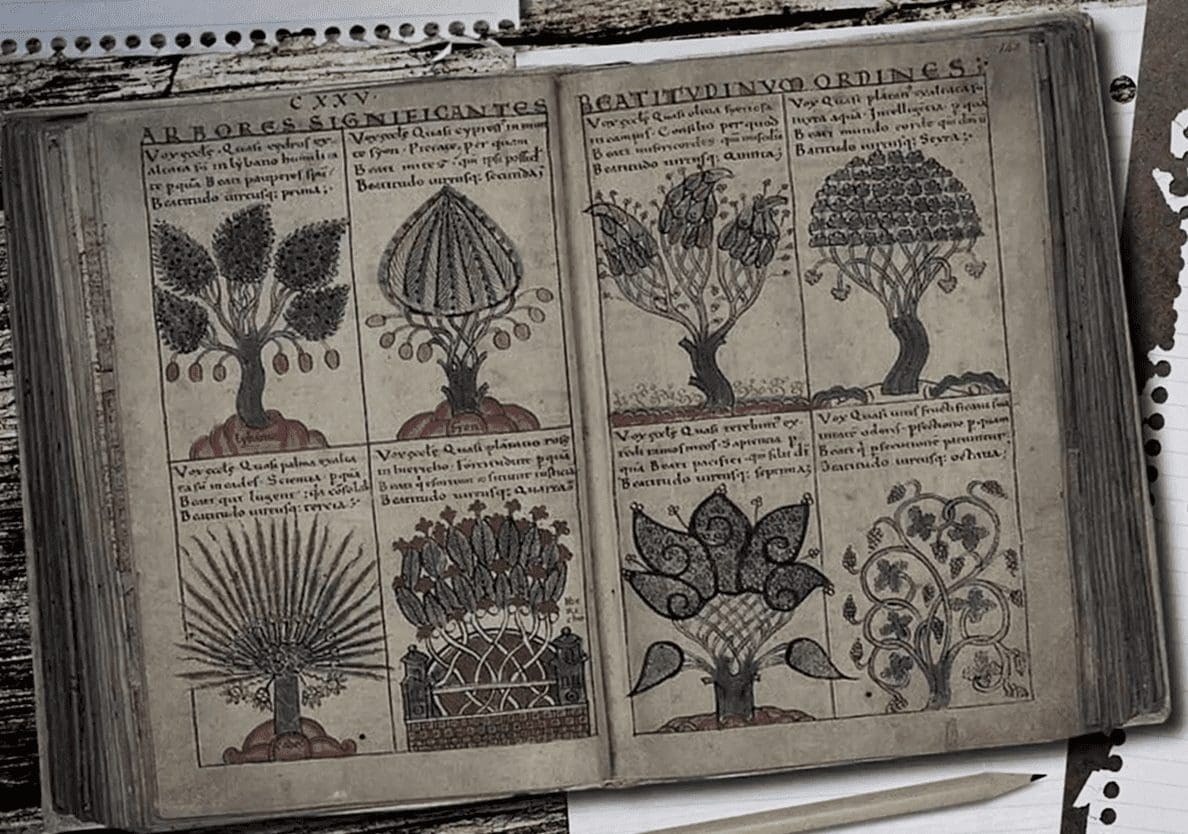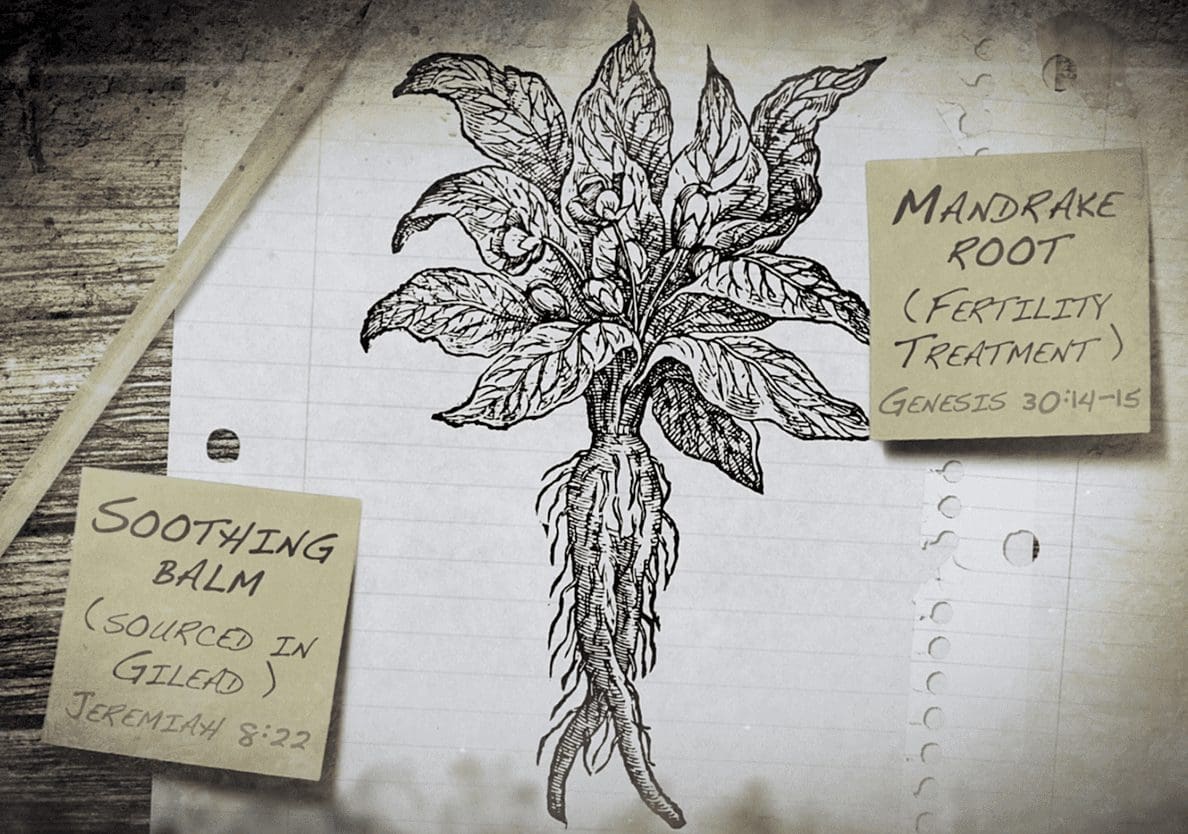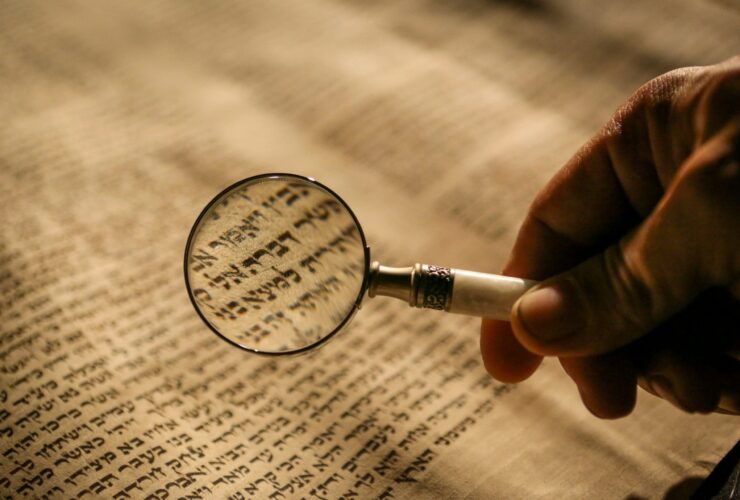The Bible and archaeology agree that ancient Israelites had several healthcare options at their disposal. The first that we come across in the Bible was likely the most common: herbal remedies. Much like today’s healthcare traditions such as soothing a sore throat with hot water, lemon and honey, ancient Israelites had their own natural remedies that was likely their first line of defense against ailment.
We see for example mandrake root being used as a fertility treatment in Genesis 30:14-15, and a soothing balm sourced in Gilead is referenced in Jeremiah 8:22. Prayer to God was another option that was likely utilized often. An example of a direct prayer to God is found in 2 Kings 20:1-6, when King Hezekiah faced with his own mortality and prayed to God for healing. Prayer could also take place at the Tent Tabernacle, or later in history at the Temple of Solomon. Consider the desperate prayer of Hannah, who was barren, receiving her healing at the door of the Tabernacle (1 Samuel 1).
“King Asa’s mistake was not in looking for an answer to his health problem, his mistake was looking solely to the physicians rather than to God…”
We know from the Mosaic Law that the priests and Levites were given regulations on how to deal with certain infections and molds (Leviticus 11-14), so this should also be seen as a type of healthcare, that linked God with the physical well-being of His covenant people. Another interactive option in ancient Israel and Judah was healing through a prophet of God. While it is likely that many prophets of God healed, Elijah and Elisha are the most famous healing prophets in the Old Testament (1 Kings 17), they even provided options and answers to foreigners who had come in search of health (2 Kings 15).


Prophets of God were not the only holy men who offered healing. It is well known from the ancient Near East that there were physicians and healers who offered practical and spiritual advice while being sponsored by this or that healing deity. Entire temples have been found dedicated to these healing gods, along with some ritualistic writings that preserve parts of worship to these gods. How connected the advice of the healers was with the pagan temples remains uncertain, but there is a reference in the Bible to at least one king of Jerusalem turning to physicians like these rather than to God such as King Asa in 2 Chronicles 16:11-12. With the knowledge that some physicians were sponsored by pagan deities rather than the God of Israel, the chastisement of King Asa makes a lot more sense. King Asa’s mistake was not in looking for an answer to his health problem, his mistake was looking solely to the physicians rather than to God or even the prophets of God. Asa had chosen where his allegiance was, and it wasn’t in the covenant he was supposed to be upholding as king.

Corie Bobechko is a daily co-host, speaker, and writer of Bible Discovery. She also hosts a YouTube channel that shows how history and archaeology prove the Bible. Her heart for seekers and skeptics has led her to seek truth and share it with others. Corie also has a Bachelor of Theology from Canada Christian College.
• Avalos, Hector. “Ancient Medicine,” Bible Review 11.3 (1995): 26–28, 30–32, 34–35, 48.
https://members.bib-arch.org/bible-review/11/3/9






